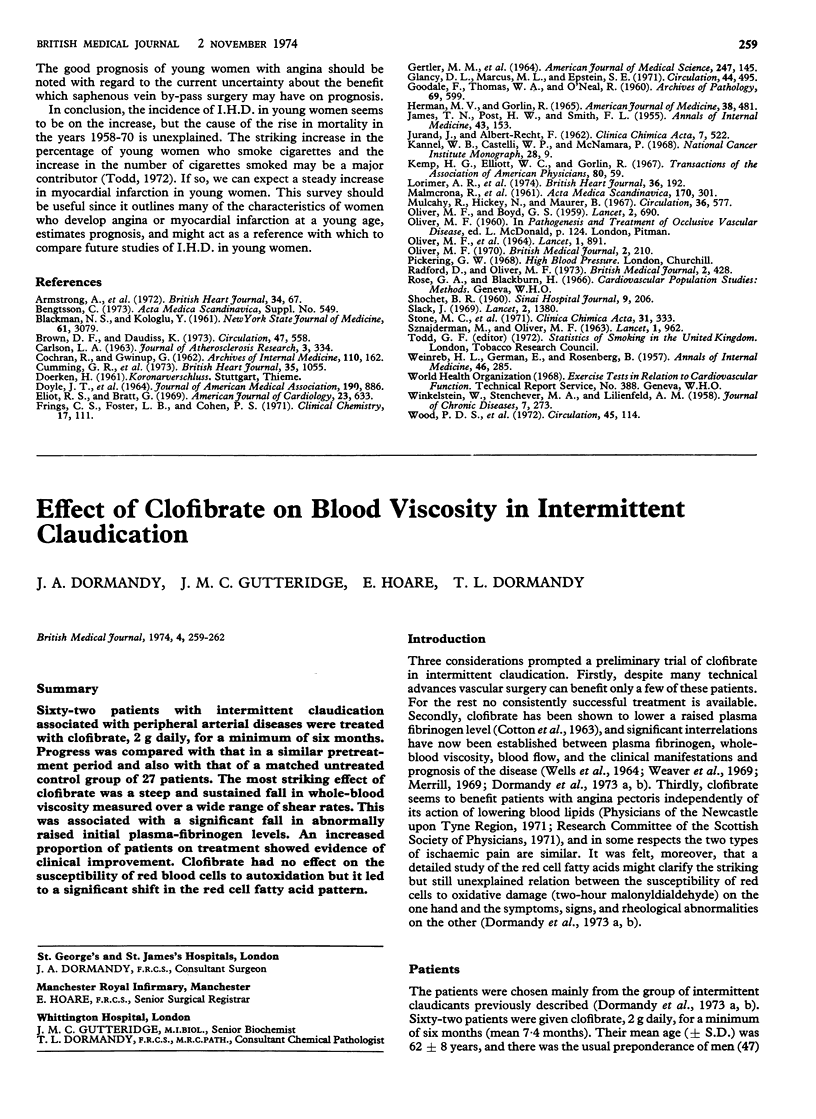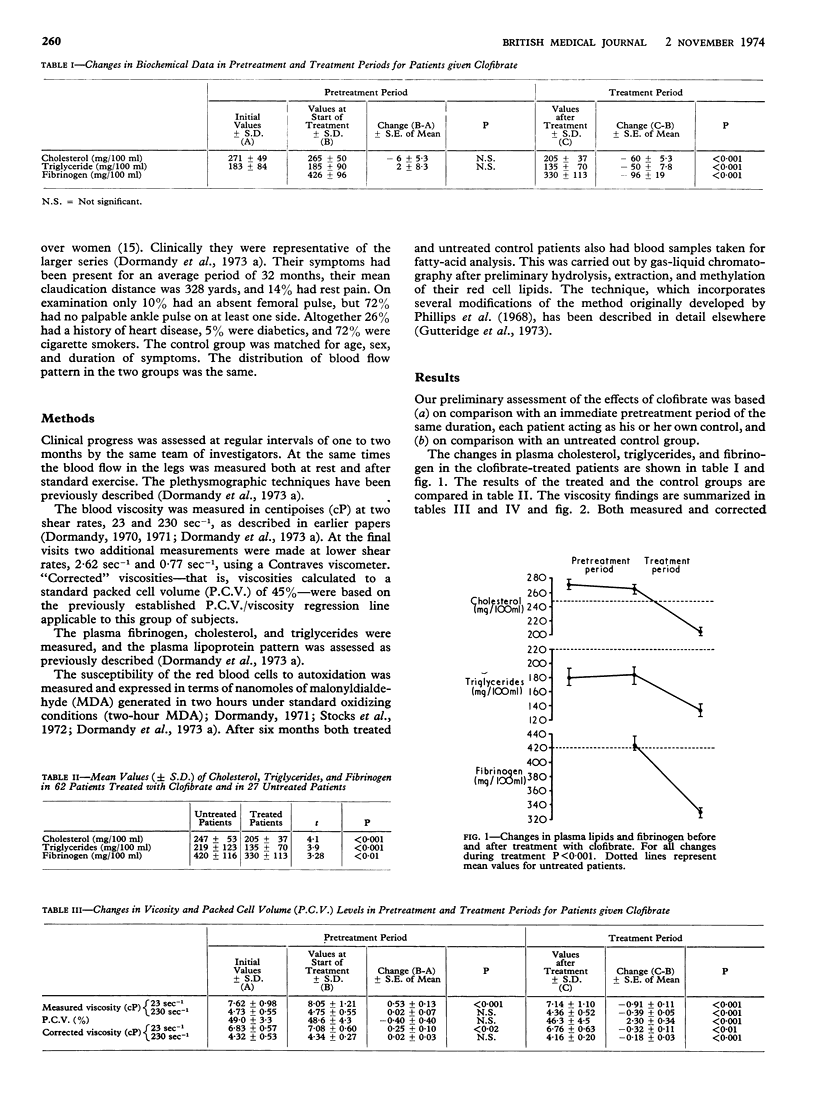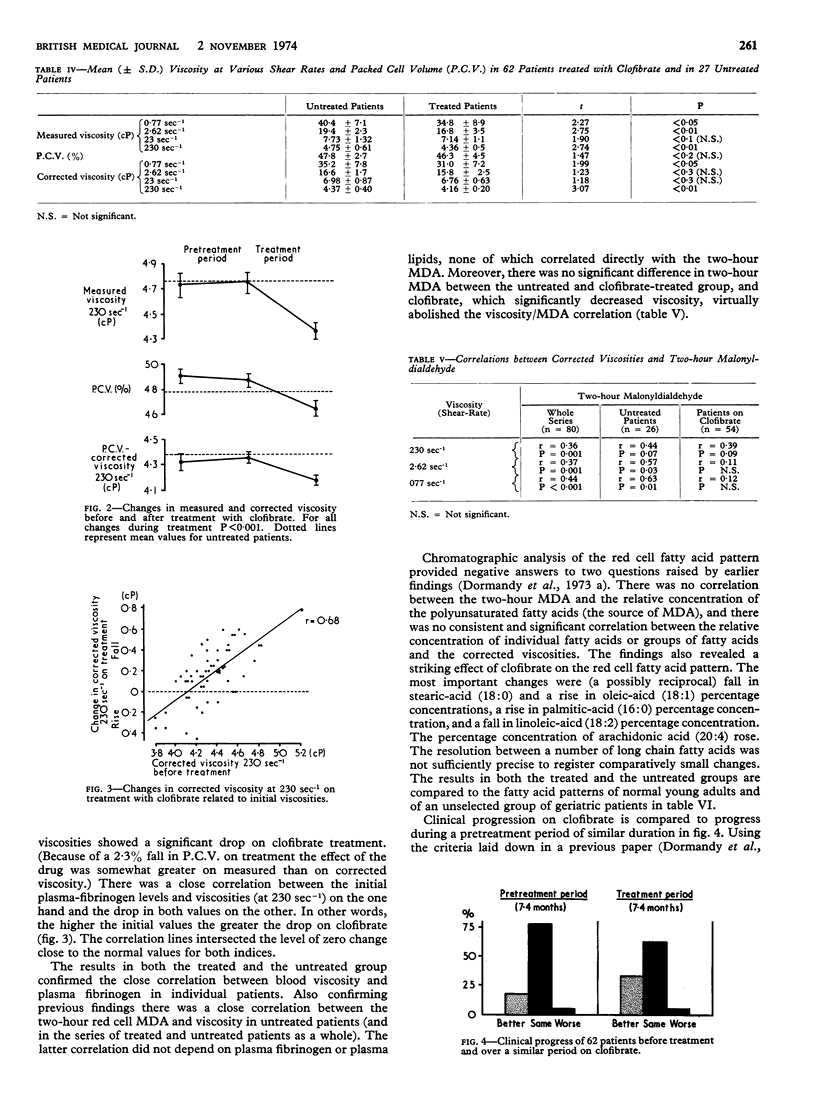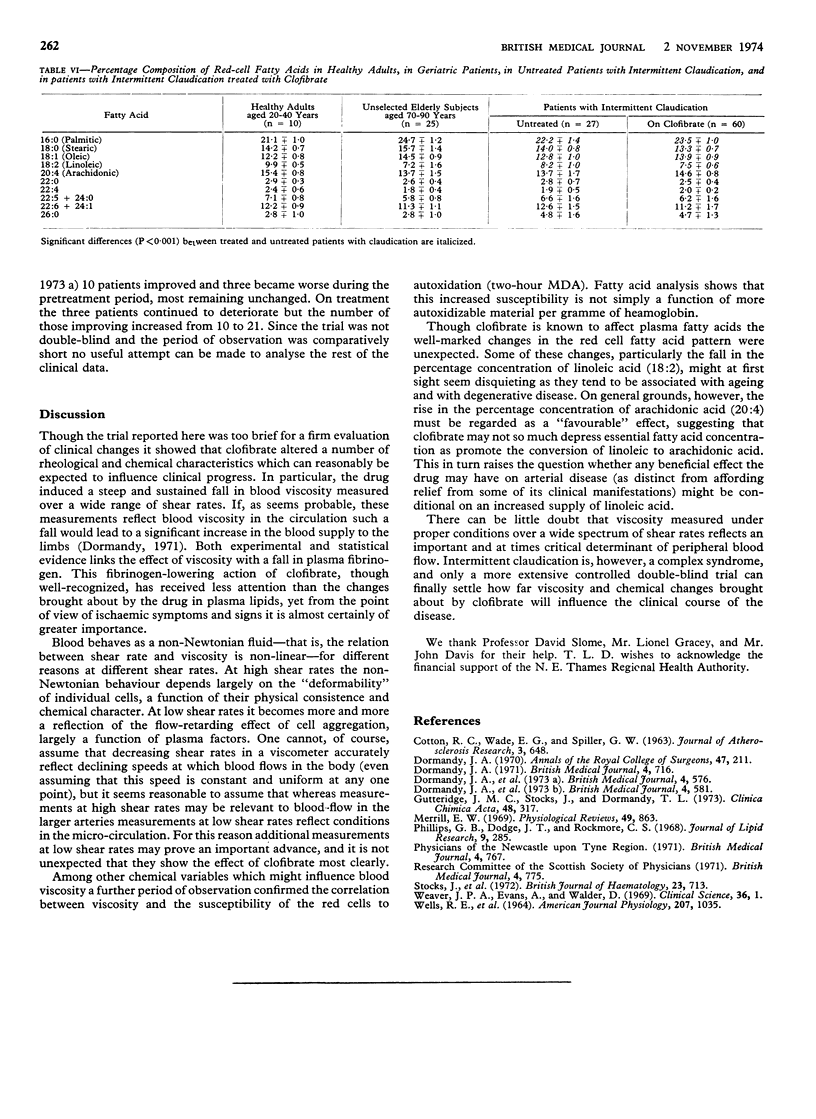Abstract
Sixty-two patients with intermittent claudication associated with peripheral arterial diseases were treated with clofibrate, 2 g daily, for a minimum of six months. Progress was compared with that in a similar pretreatment period and also with that of a matched untreated control group of 27 patients. The most striking effect of clofibrate was a steep and sustained fall in whole-blood viscosity measured over a wide range of shear rates. This was associated with a significant fall in abnormally raised initial plasma-fibrinogen levels. An increased proportion of patients on treatment showed evidence of clinical improvement. Clofibrate had no effect on the susceptibility of red blood cells to autoxidation but it led to a significant shift in the red cell fatty acid pattern.
Full text
PDF



Selected References
These references are in PubMed. This may not be the complete list of references from this article.
- COTTON R. C., WADE E. G., SPILLER G. W. THE EFFECT OF ATROMID ON PLASMA FIBRINOGEN AND HEPARIN RESISTANCE. J Atheroscler Res. 1963 Sep-Dec;3:648–652. doi: 10.1016/s0368-1319(63)80048-4. [DOI] [PubMed] [Google Scholar]
- Dormandy J. A., Hoare E., Colley J., Arrowsmith D. E., Dormandy T. L. Clinical, haemodynamic, rheological, and biochemical findings in 126 patients with intermittent claudication. Br Med J. 1973 Dec 8;4(5892):576–581. doi: 10.1136/bmj.4.5892.576. [DOI] [PMC free article] [PubMed] [Google Scholar]
- Dormandy J. A. Influence of blood viscosity on blood flow and the effect of low molecular weight dextran. Br Med J. 1971 Dec 18;4(5789):716–719. doi: 10.1136/bmj.4.5789.716. [DOI] [PMC free article] [PubMed] [Google Scholar]
- Errill E. W. Rheology of blood. Physiol Rev. 1969 Oct;49(4):863–888. doi: 10.1152/physrev.1969.49.4.863. [DOI] [PubMed] [Google Scholar]
- Gutteridge J. M., Stocks J., Dormandy T. L. A rapid technique for the determination of red cell fatty acids. Clin Chim Acta. 1973 Oct 30;48(3):317–321. doi: 10.1016/0009-8981(73)90202-7. [DOI] [PubMed] [Google Scholar]
- Phillips G. B., Dodge J. T., Rockmore C. S. Analysis of fatty acids of human red cells without lipid extraction. J Lipid Res. 1968 Mar;9(2):285–286. [PubMed] [Google Scholar]
- Stocks J., Offerman E. L., Modell C. B., Dormandy T. L. The susceptibility to autoxidation of human red cell lipids in health and disease. Br J Haematol. 1972 Dec;23(6):713–724. doi: 10.1111/j.1365-2141.1972.tb03486.x. [DOI] [PubMed] [Google Scholar]
- WELLS R. E., Jr, GAWRONSKI T. H., COX P. J., PERERA R. D. INFLUENCE OF FIBRINOGEN ON FLOW PROPERTIES OF ERYTHROCYTE SUSPENSIONS. Am J Physiol. 1964 Nov;207:1035–1040. doi: 10.1152/ajplegacy.1964.207.5.1035. [DOI] [PubMed] [Google Scholar]
- Weaver J. P., Evans A., Walder D. N. The effect of increased fibrinogen content on the viscosity of blood. Clin Sci. 1969 Feb;36(1):1–10. [PubMed] [Google Scholar]


